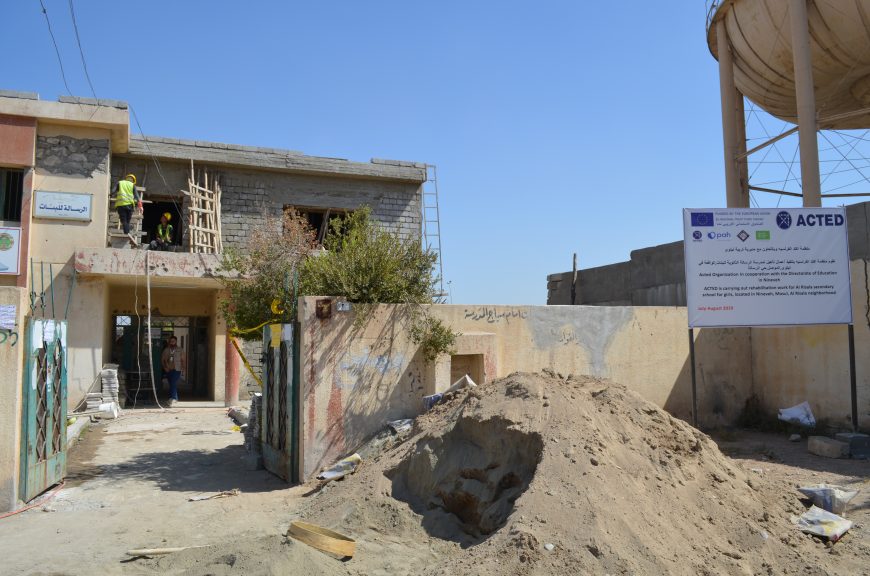The humanitarian crisis in Iraq remains one of the largest and most volatile in the world when the project started in 2018. Newly retaken areas of Ninewa, Governorate Iraq are facing a challenging and precarious situation. Water, sanitation, and hygiene conditions pose public health risks for its over 3 million residents and constrain the recovery process of host communities, returnees, and internally displaced people. ACTED has been providing access to water, sanitation and hygiene while adapting its action to the covid-19 crisis.
Providing access to water and other basic services is essential to encourage the recovery and resilience of the population in conflict affeted areas. In highly damaged areas, communal water sources are dysfunctional and insufficient to provide minimum water and sanitation standards. Due to the limited availability of water, conflict-affected populations rely on negative coping strategies to address their basic needs, including reducing water consumption, relying on dug wells, and borrowing water and money from relatives.
According to recent findings from REACH’s Multi-Cluster Needs assessment, only 20% of the returnees and 19% of displaced populations in newly retaken areas have access to stable sources of income.
Re establishing access to water in damaged areas an adapting to Covid-19
Between 7th July 2018 and 5th November 2020, the consortium, led by ACTED and comprising of People In Need, Welthungerhilf and Polish Humanitarian Action implemented a project to ensure access to basic services and also support the recovery of returnees, host communities in areas affected by the conflict.
The activities included the rehabilitation of 86 WASH infrastructures as well as providing access to water for the target population across all targeted areas. The rehabilitation works were accompanied by the capacity building of 301 local administration staff and community members on the operation and maintenance of rehabilitated WASH facilities.

Even before the COVID-19 pandemic, the project already focused on the rehabilitation of facilities alongside a behavior change communication campaign which uses hygiene promotion messaging to improve the hygiene practices of the targeted communities.
As soon as the World Health Organization declared COVID-19 a global pandemic in March 2020, the organizations taking part in the project responded quickly to adapt its programming. ACTED and the fellow organizations focused specifically on water, sanitation and hygiene awareness materials to include messaging on COVID-19 transmission, prevention and main protective practices. The materials included leaflets, posters, but also social media posts to help disseminate prevention on COVID-19.
Through awareness raising sessions ACTED was able to reach 13,341 individuals including 4,624 children. To adapt to the sanitary context, ACTED teams opted for a door to door approach.
Where previously awareness raising campaigns could be delivered in public and private spaces, social distancing and lockdown measures put in place by the Iraqi government meant that the campaign had to be adapted to still reach the most vulnerable people.